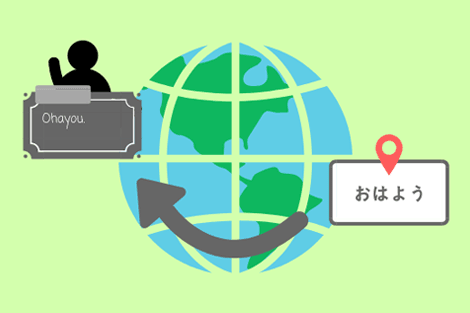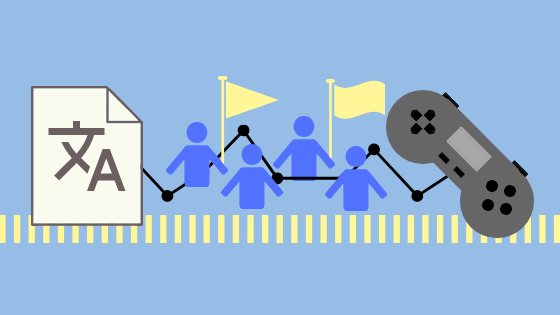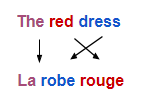Blog Sep. 26, 2018
Why Absence of Game Localization is Amiss

Your video game can be near-to-perfection for your main target market, but rolling out your games globally to reach more players without a localization plan wouldn’t work well. A poor localization, or lack thereof, will hardly help hit more of your projected sales, can bring you a bad press, and worst comes to worst, might even get your product pulled out of the stores.
With passionate fans in a very global game industry, it’s not enough to simply localize by depending on tools such as Google Translate and call it a day. You really have to step up (or go beyond) the expectations of your players.
Read further to understand what game localization is all about, what benefits it can bring, and why it shouldn’t be overlooked.
Game Localization is Not Just About Translation
The game localization process is not just about translating the words or text inside the game. The process should also include changing the art assets, audio transcripts, format requirements, and other such elements of your game’s content. With this, your game will be more fit to be released for another group audiences’ taste, belief, and perspective from different countries.
The Benefits of Localizing
As per the recent global games market report of Newzoo, there are already more than 2.3 billion active gamers around the globe, and the game market will reach $137.9 billion this year 2018. Games as products are in demand all over the world. This is a great opportunity for game developers able to tap such a huge market and more probably, increase their sales by engaging with a larger audience.
Increasing your game sales may be the forefront motivation for going global, but there may be more. Here is an overview of reasons why you should localize your games:
Increase App Downloads and Rankings
People usually feel comfortable in their native languages. With this in mind, it makes sense to that games that are well-localized have higher chances of being downloaded in native markets. Take China for example. Nearly 100% of their Top 100 downloaded games in their country are with app descriptions written in Chinese according to Localize Direct. This kind of downloading pattern of having a consistent preference for their own is also evident in other game markets: Asian countries such as Japan, Korea, and even in Europe. This is even more true with Distimo’s report, The Impact of App Translations. The data showed an increase of 128% app downloads and 26% revenue from adding a native language just after a week without translation.
Avoid Embarrassment or Being Disrespectful
Any game developer would want to maintain their product quality and reputation when releasing in different areas around the world. One mistake or scar in terms of knowledge in a regional, social or cultural environment can jeopardize your product. Being misunderstood will ignite a flow of negative feedback and bad publicity which are hard to redeem from. Careful localization can save your business from worries.
To Stay Competitive
When game developers aim to globalize, it’s usually either because they spot prospects in a specific country or they receive demands from the players. Such reasons are sensible and successfully gaining such prospects would also result in a great competitive edge for your business internationally. Contrarily, ignoring the huge market would literally be giving away such chances to your competitors. According to Pocket Gamer’s app store metrics, in 2018, there are about 300-400 apps submitted every day in the App Store. Just imagine how many other businesses you are continuously going to compete with.
To Keep Your Players
The user experience should be your main focus in creating every video game. Fans may be there waiting for your game, but if they are unable to play it in their own language and cultural way, then there may be a high chance of losing them, as you have built a wall of language and context. Tailoring your game for a specific market means reaching out and accommodating your gamers personally and valuing them. Players of different backgrounds deserve to play with the same joy and excitement that your game provides of people of the original language.
What to Look Out for in Game Localization?

Now that we’ve discussed why it is worthwhile to invest in localization, here are some important aspects you must carefully consider when you decide to start localizing your games:
Translation
Just like there are a lot of examples of “ENGRISH” around, the same exists vice versa for any language. Rather than creating a great joke for people to laugh about (which isn’t always a bad thing), or leaving users confused to the point that they give up (which is definitely a bad thing), choosing native translations that include natural nuances are always the best.
Natural nuances include expressions, context, and wording; including slang and lingo that fit the intended audience. Examples are using words like “TL;DR” that means “Too Long; Didn’t Read”, which is often used as a comment when a person didn’t read a long post but participates to join the thread. Another example is describing laughter. In English, there is “Lol”, “LMAO”, “haha” etc, whereas in Japanese there can be “www” among many, or “kkk” in Korean. We are even at an age when using Emojis could mean differently depending on the culture and generation.
Culturalization
One example that clearly illustrates the importance of culturalization would be the game Kakuto Chojin (2002). Its audio track had a chanted portion of the Islamic Qur’an which gained a lot of strong reactions, especially offending Saudi Arabia. This resulted in the discontinuation of the game. The developer did attempt to release an altered version of the game in hopes that the problem wouldn’t become a big deal, but this was too late.
Such case highlights that understanding cultural differences is very important. One sound, word, or representation could mean something entirely different from another point of views. Instead of repairing mistakes, choose to be careful and take note of cultural sensitivities when using any culture whether for business (as well as personal) matters.
Internationalization
A game content can only be displayed in a specific language if the code base, architecture, and UI went through the process of internationalization (also known as I18n). This means internationalization is the initial process or what “prepares” to complete the game localization. This is the question you may want to ask yourself, “Is the overall technicality of your game compatible to where you wish to translate it into without ruining its original quality?” There are lots to check in a game when internationalizing. To further explain what these are, a basic example would be the difference in language can vary a lot when integrating it into codes. “The red dress” when translated in French will be “La robe rouge”.

This will create complication when the created code is not flexible for different variable orders. Another one that should be internationalized in a game text is the difference in length of words, phrases, and sentences. In the example above, the “red” in French is “rouge” which is obviously longer than the word in English. With that, you may decide to modify the font proportion of “rouge” if it didn’t fit inside the stage of your game.
Project Planning
In order to accomplish localizing your game with all the previous best practices mentioned, you need to have a decided localization plan. This process is where you also decide on the targeted languages, platform, project budgets, and the schedule for releasing the game. This is where you start looking for a team or a partner for going over with different processes of modifying, translating, testing, and reviewing. You should not overlook project-planning process because without a solid plan, money, time, and effort you spent might go to waste. Make sure to go through the pre-production and then the production of your plan, after that, run an alpha phase and beta phase for software testing.
Why Video Game Localization Experts are Needed?
A common misconception about localizing is that it should only be thought about at the end of every video game project, managed separately from the game development process. In fact, to get early on board for game localization can keep you away from so many problems that may occur while translating your entire game into various languages.
How do you eliminate those problems aside from localizing ahead of time? Enter outsource.
An in-house option may have all its own benefits, but one thing outsourcing can definitely provide are guaranteed experts. Think about this: it’s hard to recruit people who are professional in these needed services, especially native speakers of the target language. However, with outsourcing companies, you can surely rely on them to get you the right people and resources. Investment on external partner will be more cost-effective rather than risks, trials, and errors.
In adish, we eliminate borders to build a family across all regions. We have native speakers who will take care of localization in order to provide a smooth, understandable experience of your game. We have test groups and translators with the right skills and experience.
Game Localization Boosts your Global Visibility and Conversion
It’s better to distribute your game across the globe with full confidence than to risk all your hard work of creating such a great video game with a weak localization plan. Failure to localization is automatically a disadvantage of penetrating a wider market. Localizing may be an extra work, but it can make your players feel that they are important to you, which is far more rewarding at the end of the day.
There are a lot of processes that a game undergoes before release, but adapting to each of your respective markets is a strategy that should not be neglected if your goal is to increase your sales and have the world playing your game!
It will take quite a long time and double effort from your side to localize properly, but having the right partner to help you execute your game localization plan will be no doubt a lot easier and more effective. If you want to generate more profit from your game, it’s never too late to give it a try. Get started with adish.







